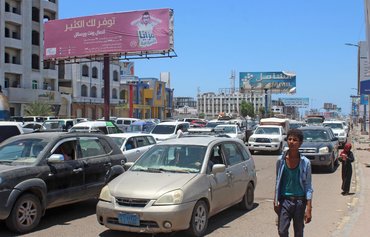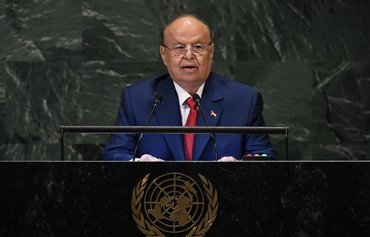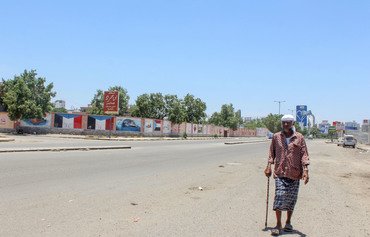Yemen's Southern Transitional Council (STC) on Sunday (October 4th) presented a plan for implementing the military aspect of the power-sharing agreement it signed with the government in Riyadh last November.
The separatists' negotiation team has presented its plan for military re-deployment, STC head Aidarous al-Zubaidi said during a virtual meeting, noting that many aspects of that plan already have been agreed upon.
Al-Zubaidi stressed the need to implement the principle of equal representation between the north and south in the new government, noting that "there will not be any disputes or differences among the southerners in this regard".
In late July, the Yemeni government and STC accepted a mechanism for accelerating the implementation of Riyadh Agreement.
This included the formation of a new government with parity between the south and north, appointment of a governor and security chief for Aden, and ceasefire between government and STC forces.
This also called for the pullout of military forces from Aden, separation of the two sides' forces, and redeployment to their former positions.
Before the new prime minister is named, the STC was asked to abandon its April declaration of self-administration regarding the southern provinces.
Al-Zubaidi also called on security personnel in Aden who were staging a protest against the suspension of their salaries to end this "because it is causing additional suffering for the citizens who are already facing tough conditions".
He confirmed that the STC supported their demands, and that it was dealing with their legitimate rights as a priority and would never abandon them.
Some solutions reached
Parliament Speaker Soltan al-Borkani meanwhile said solutions have been reached for some of the complexities in the implementation of the mechanism.
The military and political aspects of the agreement will be fully implemented in the coming days, he said.
"The implementation of the Riyadh Agreement, formation of government and its return to Aden will be an important step for improving the living conditions of people, restoring security and stability and providing services," al-Borkani said.
Late last month, Foreign Minister Mohammed al-Hadhrami said the government has implemented its obligations under the Riyadh Agreement.
He accused the STC of procrastination in the implementation of the military aspect and withdrawal of its forces from Aden, and called on it to respect its obligations.
During a meeting of the caretaker government on October 4th, Prime Minister-designate Moeen Abdulmalik reviewed efforts to implement the mechanism.
"The suffering of citizens in Aden and the southern provinces is increasing because of the deterioration of services due to failure to implement the Riyadh Agreement," economist Abdul Aziz Thabet told Al-Mashareq.
"The announcement of the formation of a new government with equal representation of the south and north and its return to Aden to exercise its powers will help restore services," he said.
It also will "improve economic conditions, and stop currency deterioration, which is harming the economy and causing price hikes", he added.
"Riyadh may be able to deal with the two sides' fears and mistrust in the implementation of the military aspect of the agreement," Thabet said.
"It can do this by accommodating their views on how the military aspect can be implemented, which must be done by pulling out STC forces from Aden and re-deploying the government forces, as per the agreement and its mechanism."

![President of the Southern Transitional Council Aidarous al-Zubaidi speaks at the STC national assembly meeting in al-Mukalla on February 16th, 2019. [Saleh al-Obeidi/AFP]](/cnmi_am/images/2020/10/05/26395-STC-president-Zubaidi-600_384.jpg)






